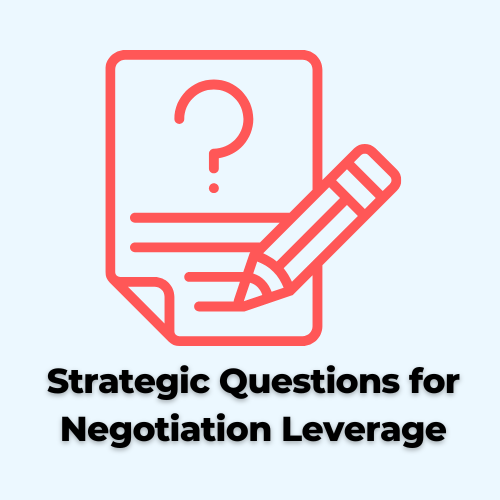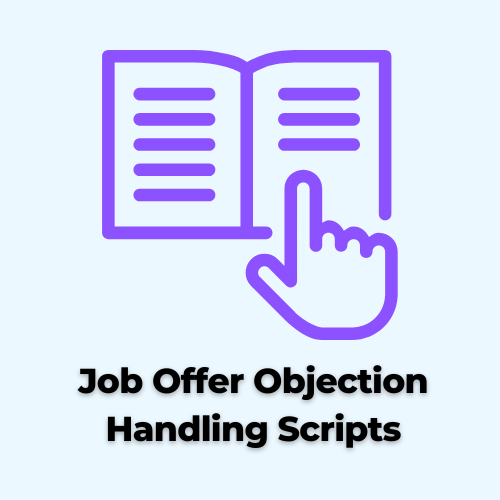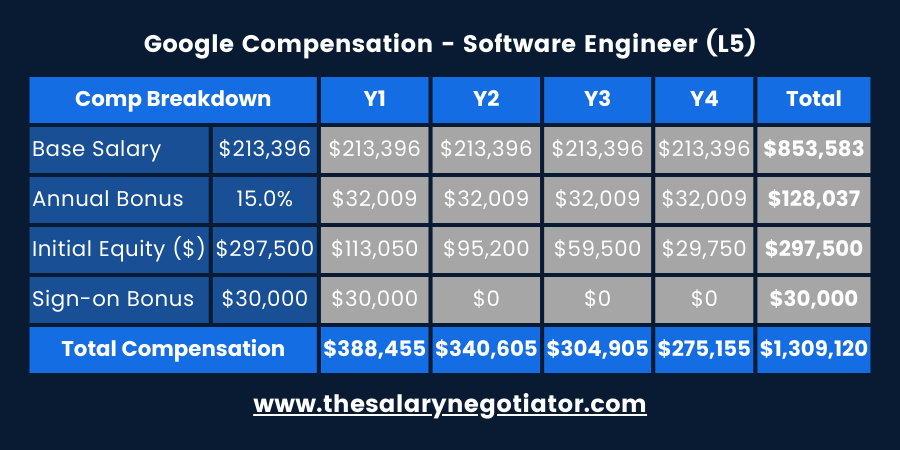Negotiating a Job Offer After a Layoff
With much of the economy in turmoil, tech layoffs have dominated news headlines in recent months. Many tech leaders are having to make tough staffing decisions, reduce the workforce, and shake up narratives surrounding job security in the sector. As such, many tech workers are concerned about losing their jobs while the prospect of a recession looms.
In the unfortunate event of a layoff, most workers start hunting for new roles in other companies. While many people fear this scenario will force them to accept a lower compensation, this is nowhere near the truth.
At The Salary Negotiator, we’ve supported many career professionals in negotiating new job offers following layoffs. While some clients find their confidence takes a hit after being let go, our results demonstrate that employees who have been laid off can achieve the same success with salary negotiations after a layoff as jobseekers who are currently employed.
We recognize that landing and navigating interviews can be emotionally draining and stressful after a layoff, especially if your job was a significant part of your identity. However, putting yourself out there will help rebuild your confidence and is more than worth the effort.
So, whether you’ve been laid off, are worried about your job security, or are curious about how to negotiate job offers in tough circumstances, we’ve put together this article on negotiating a job offer after a layoff, including specific steps for approaching the salary negotiation.
Want to Negotiate Your Offer? Get offer-specific guidance from a Salary Negotiation Coach. We help career professionals negotiate competitive job offers.
Or leverage our Salary Negotiation Courses and Salary Negotiation Templates.
 Job Offer Negotiation Course
Job Offer Negotiation Course
- Get our job offer negotiation strategies, templates, scripts, and guidance.
- Access our step-by-step lessons, compensation research guides, and tools.
- Access Now
 Raise Negotiation Course
Raise Negotiation Course
- Get our raise negotiation strategies, templates, scripts, and guidance.
- Access our step-by-step lessons, compensation research guides, and tools.
- Access Now
How will hiring teams view your skill set after a layoff?
By definition, layoffs are not – we repeat, NOT – a reflection of poor performance or questionable character. Layoffs happen when businesses need to cut costs or deprioritize projects due to diminishing consumer demand for goods and services, seasonal closures, or economic inefficiencies. Companies that grow too fast are especially susceptible to layoffs, as they’re often unprepared to handle economic difficulties during tough times.
Ultimately, decent hiring teams understand that businesses are often forced to make tough decisions. As such, they will not penalize candidates affected by company restructuring projects during interviews or job offer negotiations. In fact, firms are sometimes excited when their competitors lay off staff members, viewing such changes as opportunities to absorb top talent into their ranks. If you have skills from which other companies in your sector could benefit, it’s worth leveraging your past experiences and emphasizing how you supported your previous employer’s innovative projects.
Will you have the leverage to negotiate your job offer after a layoff?
It’s tempting to believe a prospective employer is doing you a favor if they offer you a job following a layoff. However, this mindset (while understandable) could destroy your bargaining power and prevent you from achieving the compensation you deserve.
Remember – companies pour significant time and money into hiring new candidates. It takes time to review applications, manage schedules between the hiring team and candidates and finally conduct interviews to narrow down the candidate pool. Sometimes, it can take several months for companies to find the right fit, especially in specialized fields requiring niche qualifications. If you reject an offer after the selection process, the employer will have to return to the drawing board and spend even more time and money on their recruitment efforts.
So, if you have the right experience, qualifications, and skills for a role, you have significant leverage to negotiate your job offer. If an employer offers you a job, they want you to join the team and will usually work with you to negotiate a fair deal – regardless of whether you’ve been laid off in the past. Most of the time, negotiating a salary is more cost-effective than extending recruitment efforts that aren’t even guaranteed to pay off.
We strongly believe everyone with a job offer should negotiate their compensation before accepting to receive competitive compensation for their skills. Layoffs happen and should not impact a candidate’s ability to advocate for themselves. In short, don’t allow job offer negotiation myths or hearsay to dent your confidence during the hiring process!
How to negotiate a job offer after a layoff
So, you’ve received a job offer following a layoff. Congratulations! Clearly, you have the skills and experiences necessary to help an alternative employer achieve its goals. So, how can you leverage this fact to successfully boost your offer package while maintaining confidence in your abilities? We’ve put together five simple steps based on our successes with clients who’ve been laid off.
While these are the key steps to a strategic salary negotiation, we strongly recommend career professionals work with a Salary Negotiation Coach to guarantee success and get all of our strategies.
Step 1: Understand the compensation components of your job offer
Most employers offer a range of pay components that should be included in your total compensation, which may include:
Base Salary
Annual Performance Bonuses
Equity (Stock or Options)
Sign-on Bonuses
By knowing the ins and outs of every compensation component, you’ll understand your total compensation and be more equipped to advocate for increases in the overall compensation package—not just one part. For example, here’s what the total compensation at Google may look like for a Software Engineer (L5) – that way you know how to compile your total compensation:
Google l5 Salary
Step 2: Complete due diligence on your job offer by asking the right questions
Before accepting a job offer, you should first ask questions to ensure you understand the entire package and display to the hiring team that you’re completing your due diligence. By doing this you will gather additional offer details, build up your leverage for the counteroffer, and capture some quick wins.
Even if you think you already understand all aspects of the offer, asking for clarification or more information will strengthen your counteroffer and your reasoning for why they should provide a more competitive offer package. You can use our list of Strategic Questions to Build Negotiation Leverage if you need help finding the right questions to ask about your job offer.

- Build Negotiation Leverage – Ask the right questions to strengthen your negotiation before sending a counter.
- Email & Phone Scripts – Get our list of questions to ask and what to say if the recruiter wants to chat through them.
- Get Here
Step 3: Research pay ranges to identify what your total compensation should Be
Once you’re sure that the position would work for you, it’s time to research compensation for that role at that company. If the offer is below the top end of the pay range for this role, you can use this data point in your counteroffer.
We use a few internal tools to research compensation for our clients, but if you’re researching on your own, there are many public resources you can use, such as Payscale, Glassdoor, or other compensation sites. Be sure to check multiple sources instead of relying on one as the authoritative resource for what the role should pay – remember these are publicly reported and can be prone to errors. You can download our Total Compensation Research Comparison Tool to help you with your compensation research.

- Understand Total Compensation – Use our tool to break down and calculate the compensation in your job offer.
- Research & Compare Offers – Organize your compensation research and determine the right counter amount.
- Get Here
Step 4: Draft and send a counteroffer to the hiring team
Once you’ve sifted through the details, it’s time to draft and send an official counteroffer to the hiring team. In this step, you’ll present your ask to the hiring team in an email by referencing your research on the pay range and how the benefits differ from other companies and/or your current role. To ensure proper communication, use our Counteroffer Drafts for examples if you need help formulating a strategic counteroffer.

- Proven Counteroffer Templates – Built from hundreds of successful job offer negotiations.
- Negotiate with Confidence – Remove the guesswork with our professionally crafted counteroffers.
- Get Here
Just remember that you should always approach this step as kindly as possible. We recommend treating the recruiter like a friend who is doing their best to help you transition to the new company.
Step 5: Handle any objections from the hiring team and send another counteroffer
Address any objections to ensure that the hiring team takes back your concerns for another look at what they can do to improve the offer. Do this even if they insist their team will just say no and follow our objection handling scripts if needed.

- Overcome Recruiter Pushback – Proven scripts to handle pushback and keep your salary negotiation on track.
- Communicate Effectively – Use expert responses to get recruiters to advocate for you with the compensation team.
- Get Here
If your offer is rejected, don’t give up! Alter your approach and try another time with one of our second counteroffer drafts – if you have another job offer then this is when you can bring that into the conversation.
Once you have an offer that aligns with your goals then you can lock it in with an offer acceptance email and start the transition tot he new role!

- Accept or Decline – Expert crafted job offer acceptance email and rejection email templates to share your decision.
- Professional & Genuine Tone – These help you communicate in a professional manner regardless of what you decide.
- Get Here
The Bottom Line
We agree that layoffs are tough. However, following the steps listed above is vital if you want to navigate your job offer negotiation with confidence and secure competitive compensation.
If you want to guarantee success in your salary negotiation after a layoff, get Salary Negotiation Coaching from us. Our experience helping career professionals negotiate job offers will ensure you negotiate competitive compensation after a layoff.
We also have our How to Negotiate a Job Offer and How to Negotiate a Raise courses, and Salary Negotiation Templates to give you confidence in these discussions.
We’ve helped hundreds of candidates in a wide variety of situations successfully negotiate their job offers, demonstrating that nearly all offers are negotiable and everyone has the potential to boost their career compensation during the hiring process.
 Job Offer Negotiation Course
Job Offer Negotiation Course
- Get our job offer negotiation strategies, templates, scripts, and guidance.
- Access our step-by-step lessons, compensation research guides, and tools.
- Access Now
 Raise Negotiation Course
Raise Negotiation Course
- Get our raise negotiation strategies, templates, scripts, and guidance.
- Access our step-by-step lessons, compensation research guides, and tools.
- Access Now


